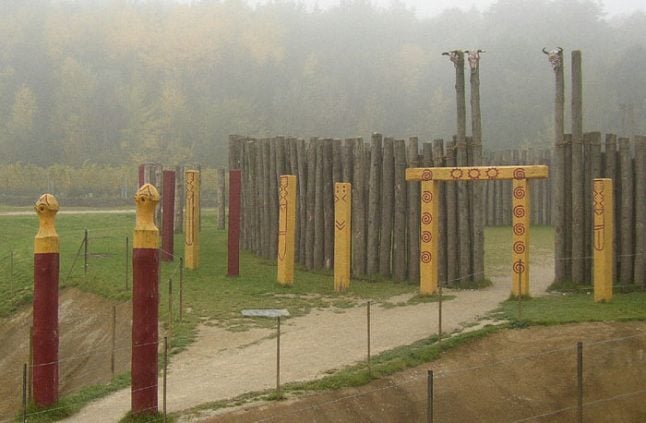HISTORY
Burgenland’s ‘Stonehenge’ discovery
In a sensational find for Austrian archaeologists, aerial photographs taken two years ago on the southern outskirts of the Burgenland town of Rechnitz have revealed the existence of circular trenches dating back to the Neolithic Period.
Published: 17 July 2014 09:23 CEST

Reconstruction of circular ditches at Heldenberg, Lower Austria. Photo: Wikimedia Commons
The mysterious millennia-old sites are currently being surveyed by experts who believe they once served both as a giant calendar and a place for rituals.
It appears that circa 5,000 BC there was a large circular area in a field on the southern outskirts of Rechnitz, surrounded by wooden poles. It was only after aerial photographs were taken of the district that remnants of an ancient trench system became visible.
Archaeologist Klaus Löcker told the ORF that the concentric circular trenches – some up to four metres deep – will now be made visible using magnetic measuring techniques.
Inside the trenches are defensive walls with multiple entrances.
Descriptions of Rechnitz's history usually state the area was settled in the Celtic period, around 500 BC. It now appears there was in fact a human settlement in the area over 5,000 years before Christ.
"This is quite unique in Burgenland," said Mayor Engelbert Kenyeri.
The purpose of these circular earthworks has long puzzled experts, but it now seems they were used as a calendar, and held ritual significance for neighbouring populations.
"That is roughly equivalent to Stonehenge, only about 2,000 years older," said archaeologist Franz Sauer.
The criteria for site selection are a complete mystery. There are similar trench systems in Austria's Weinviertel and Bavaria, however the two discovered at Rechnitz are the first in Burgenland.
"Such circular trenches are always positioned on a gentle slope, in order to give a clear view of the sky for the observation of the heavenly bodies," explained Sauer.
The advent of aerial archaeology in the 1970s has enabled the study of ancient sites to take on a whole new dimension.
Url copied to clipboard!


 Please whitelist us to continue reading.
Please whitelist us to continue reading.
Member comments